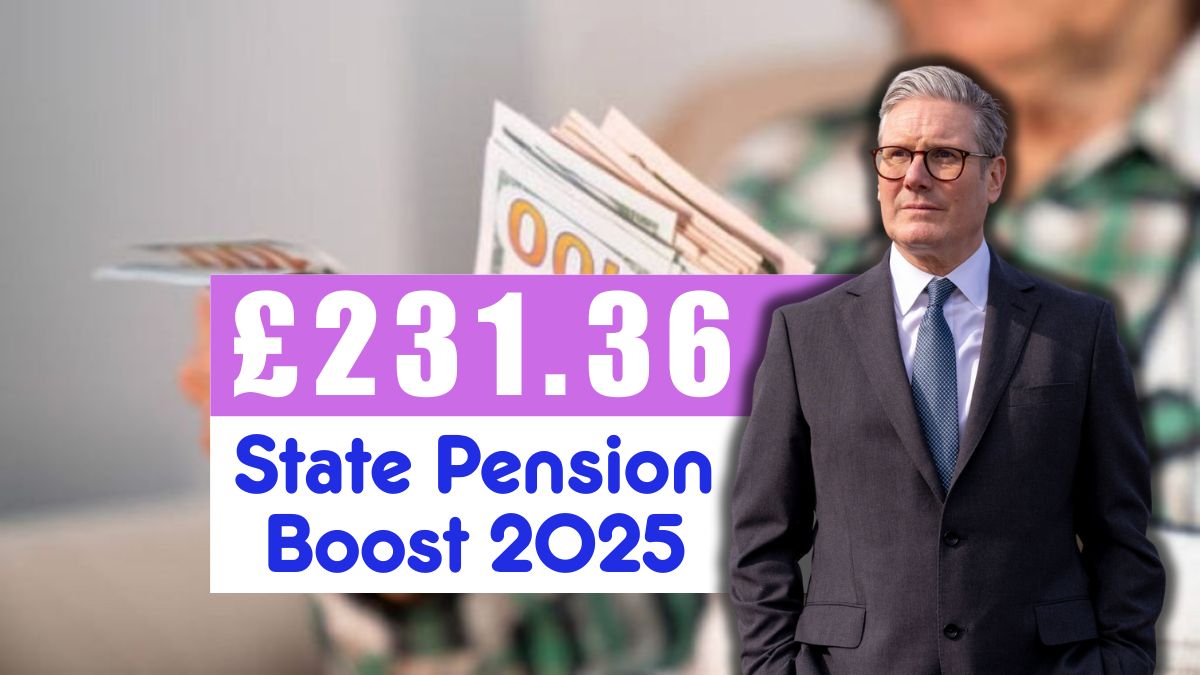The UK Government and HM Revenue & Customs (HMRC) have officially confirmed a new financial policy that will directly affect thousands of UK pensioners. Beginning 27 October 2025, a £420 deduction will start appearing in certain pensioners’ bank accounts. This change is part of a broader reform to recover overpaid benefits, tax credits, or pension overpayments through automated bank adjustments.
The move has already caused concern among retirees who rely heavily on their State Pension as their primary source of income. Here’s everything you need to know about the change, who will be impacted, and how to safeguard your pension income.
Why HMRC Introduced the £420 Bank Deduction

According to official statements from HMRC and the Department for Work and Pensions (DWP), this new measure aims to recover overpaid public funds — such as tax credits, pension overpayments, or benefits paid in error during previous financial years.
Until now, most overpayments were recovered through manual processes or repayment requests sent to pensioners. Under the new system, HMRC will automatically withdraw owed amounts directly from bank accounts, ensuring faster and more consistent recovery.
Officials argue that this approach will make the system fairer and more efficient, reducing administrative delays while helping clear outstanding debts to the public purse.
However, many older citizens have expressed anxiety over the change, fearing sudden or unexplained deductions from their accounts.
Who Will Be Affected by the New Deduction Rule
HMRC has clarified that not all pensioners will be impacted. The deduction applies only to specific cases where an overpayment or tax adjustment is already confirmed. The main affected groups include:
- Pensioners who received overpayments through benefits such as Pension Credit, Housing Benefit, or other DWP schemes.
- Those who have outstanding tax corrections or errors from previous years.
- Individuals who were notified of a discrepancy by HMRC but failed to respond or resolve the issue.
If you receive only the basic State Pension and have not been contacted by HMRC or DWP regarding any overpayment, it’s unlikely you’ll be affected.
Still, officials recommend checking your correspondence regularly — especially any letters or messages from the Government Gateway — to ensure you’re not caught by surprise.
When the Deductions Begin
The policy will take effect on 27 October 2025, marking the start of the first nationwide phase of automated deductions.
Participating banks and building societies will be authorised to process HMRC-initiated deductions under this reform. Affected pensioners will see transactions labelled as:
“HMRC Adjustment” or “Benefit Overpayment Recovery.”
Before any deduction is made, pensioners will receive an official notification by post or via their Government Gateway account. This allows time to review, verify, or dispute the claim before funds are withdrawn.
HMRC stresses that transparency and prior notice are key parts of the process.
What the £420 Figure Means
The £420 deduction is not a fixed penalty, but rather an average amount representing what HMRC expects to recover from each affected case in the initial phase.
Some pensioners may see smaller deductions, while others may face larger ones, depending on the nature of their overpayment.
The figure is based on typical cases involving minor benefit errors, duplicate pension claims, or tax credit adjustments from the 2023–2024 financial year.
Importantly, no additional interest or late fees will be applied. The amount deducted will strictly represent funds HMRC considers to have been overpaid.
Why the Government Is Acting Now
The decision comes amid growing pressure on the Treasury to reduce public debt and recover overpaid funds.
According to an HMRC report, more than £2.1 billion in benefit and tax overpayments remain uncollected from previous years. Officials believe that introducing automatic recovery is a more cost-effective way to ensure accountability and strengthen public finances.
The government cites three main goals for the reform:
- Faster recovery of overpaid funds.
- Reduced administrative costs linked to manual repayment systems.
- Fairness and consistency across all taxpayers.
While financially practical, critics argue that the timing is insensitive — particularly as many pensioners continue to struggle with high living costs and rising energy prices.
How the Deductions Work in Practice
For most pensioners, deductions will be spread out gradually rather than taken in one lump sum.
HMRC says this approach prevents unnecessary financial strain and allows retirees to manage their monthly budgets more comfortably.
Each deduction will appear clearly in your bank statement, and you’ll receive confirmation letters showing the breakdown of what is being repaid and why.
If you believe a deduction has been made in error, you can immediately contact HMRC to request a review or suspension until the issue is resolved.
How This May Affect Your Monthly Pension Income
Although the £420 figure may not sound large in isolation, for retirees living solely on the State Pension, it can represent a significant loss.
Currently, the full new State Pension is £221.20 per week, meaning that £420 equals nearly two weeks of pension income.
If the deduction is spread out, it will likely reduce monthly payments slightly — but if taken all at once, it could cause short-term hardship.
Financial advisers recommend that pensioners:
- Build a small emergency fund in anticipation of deductions.
- Review household budgets and expenses.
- Seek financial guidance if the deduction creates difficulties.
Steps Pensioners Should Take Now
If you’re a pensioner or receive DWP-related benefits, take these immediate actions:
- Check all correspondence from HMRC and DWP, both by post and online.
- Log in to your Government Gateway account to review your benefit history or any alerts.
- Contact HMRC if you’ve received a notice but disagree with the calculation.
- Set up a repayment plan if paying the full amount at once would cause hardship.
- Keep copies of all communication and transaction records for reference.
Staying proactive will help prevent unexpected deductions or disputes when the rule takes effect next October
Reaction from Pensioner Groups and Experts
The announcement has sparked strong reactions from pensioner advocacy groups and financial experts.
Silver Voices, a major campaign group for older Britons, described the policy as “a bureaucratic blow to people already coping with record living costs.”
Financial expert Martin Lewis urged HMRC to ensure clear communication and compassion in implementation:
“The recovery of overpaid funds is fair, but it must be handled with transparency. Pensioners deserve to know exactly what’s happening and how they can appeal.”
The Institute for Fiscal Studies (IFS) echoed similar concerns, warning that poor rollout or unclear messaging could “erode trust” between pensioners and the government.
Can You Challenge or Appeal the Deduction?
Yes. HMRC has confirmed that all affected individuals will have the right to appeal or request a review before any deduction becomes final.
If you believe the deduction is incorrect, you can:
- Contact HMRC directly by phone or online.
- Provide proof of prior repayment or dispute the overpayment calculation.
- Submit an appeal within 30 days of receiving the official notice.
In cases of financial hardship, HMRC may pause or reduce the deductions temporarily — especially for pensioners on low incomes or with health-related vulnerabilities.
Wider Economic Impact of the Policy
Economists believe that automated deductions could recover hundreds of millions of pounds in uncollected funds over the next fiscal year.
While the Treasury views this as a responsible step toward balancing public finances, critics say it risks penalising pensioners who were unaware of overpayments or administrative errors.
The timing, just before winter 2025–26, may also draw political scrutiny, as households face higher heating and energy costs.
Analysts suggest that the government might later introduce hardship exemptions or supplementary support payments for those most affected.
The Future of UK Pension Administration
The £420 deduction marks a turning point in how the UK Government manages pension and benefit systems.
Future reforms are expected to include:
- Real-time tax adjustments using digital systems.
- Better coordination between HMRC and DWP databases.
- Automated overpayment detection to prevent errors early.
While these advancements promise greater accuracy, they also mean pensioners must remain digitally engaged and regularly check official communications.
FAQs on the HMRC £420 Pension Deduction
1. Who will be affected by the £420 deduction rule?
Only pensioners with confirmed overpayments or tax discrepancies identified by HMRC or DWP will be affected.
2. When will the deductions begin?
The process officially starts on 27 October 2025.
3. Can I challenge the deduction?
Yes. You can request a review or appeal within 30 days of receiving your official notice.
4. Will everyone lose £420?
No. The £420 is an average estimate, not a fixed amount. Actual deductions may vary.
5. Will the deduction affect my future pension payments?
Only temporarily. Once the balance is recovered, your regular payment schedule will resume as normal.






















